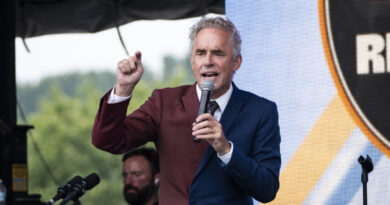Controversy Over Costly GP Visits Sparks Debate in Queensland State Election
An amnesty on GP clinics being required to pay payroll tax will expire in 2025, and the state’s opposition warns that it could have negative implications for bulk billing.
The state opposition is worried that the current amnesty on general practitioner (GP) payroll tax, set to end next year, may lead to the end of bulk-billing by doctors in Queensland.
Liberal National Party (LNP) Opposition Leader David Crisafulli mentioned this issue during the Nine network’s Great Debate on Oct. 3, suggesting that Labor might reimpose the tax if they win the election.
Currently, some GP clinics are exempt from paying payroll tax, but once the amnesty expires, all clinics would have to comply with the tax regulations.
Payroll tax is determined by the state and is based on the total wages paid by a business each month. A state government amnesty is in place until mid-2025.
There are concerns that if all GP clinics have to comply with the tax, the cost could be passed on to patients, resulting in higher fees or the end of bulk billing.
Exemptions from payroll tax would be available for patients who directly pay an individual medical practitioner.
The LNP has promised to eliminate the tax if they win the election.
During the debate, Crisafulli cited the Australian Medical Association (AMA) who referred to it as a “patient tax,” expressing concerns that costs could be shifted to the most vulnerable.
“The AMA warns that this patient tax, scheduled to generate $100 million (US$68 million) per annum in the budget after the election, will result in the demise of bulk billing,” he said.
“It will lead to closures of surgeries and add pressure to our already overwhelmed emergency departments.
“Why, in the midst of a health and cost-of-living crisis, would you introduce a patient tax that makes it more expensive to visit the GP and further strains a struggling system?”
In response, Queensland Premier Steven Miles stated to Crisafulli that there was no such thing as a patient tax but did not deny that Labor might enforce payroll tax for all GP clinics once the amnesty expires.
Miles highlighted the additional services being provided by the government for those who cannot see a GP.
“We are ensuring that primary healthcare services are available… we have opened another nurse-led clinic where Queenslanders can receive care without an appointment,” he said.
“We are also expanding the healthcare services that pharmacies can offer, reducing the need for a GP’s appointment. This is essential as many people currently struggle to secure one. We are implementing measures to ensure Queenslanders have access to the primary care they require.”
Miles mentioned that Labor has increased bulk billing rebates and emphasized the need for these rebates to continue rising to prevent hospitals from being overwhelmed.
AMA’s Concerns Regarding the Tax
AMA Queensland Immediate Past President and GP Maria Boulton criticized the tax, stating that it would harm those who need medical care the most.
“It will impact those who require medical attention frequently, such as individuals with chronic illnesses, mental health conditions, and young families,” she said in a statement.
“AMA Queensland fully supports the LNP’s decision to abolish this patient tax.
“We are aware that many individuals are postponing medical treatment due to financial pressures. This patient tax will increase the out-of-pocket expenses for patients, particularly in aged care facilities.”
Boulton estimated that the additional cost for a doctor’s visit could range from $6 to $30.
“Currently, we have an amnesty in place. However, there is concern about the changes next year, and it is expected that bulk billing rates will be affected if this patient tax is maintained,” she said.
Boulton emphasized the need for clarity.
“While we appreciate the government’s amnesty and the Queensland Revenue Office’s clarification that direct payments to a GP are exempt from this new tax, there is still uncertainty,” she explained.
“GPs are anxious about potential audits when the amnesty concludes and are unsure about what will happen with the introduction of federal MyMedicare payments next year.
“Furthermore, non-GP private specialists are not eligible for the amnesty and are concerned about the possibility of unexpected retrospective bills.”
MyMedicare is a federal initiative that will provide additional funding to a patient’s chosen regular clinic.
Economist’s Perspective
Chief economist at the Australian Taxpayers’ Alliance and Director for the Australian Economic Education Foundation John Humphreys believes that GP clinics will be impacted by the tax.
“The LNP is correct in warning about the impending tax hike for certain GP clinics under Labor, and the Australian Taxpayers’ Alliance supports the LNP’s proposal to eliminate payroll tax for doctors,” he told The Epoch Times.
“We would like both major parties to go a step further and raise the payroll tax threshold to $2 million, allowing more small businesses across all sectors to avoid the expenses and complexities associated with payroll tax.”
About the Amnesty
The GP clinic amnesty was implemented in 2022 after courts determined that GP clinics should be treated as single entities rather than a network of independent contractors. This reclassification pushed many clinics above the payroll tax threshold, making them subject to payroll tax.
States like Queensland granted clinics a temporary reprieve – the amnesty – to allow them time to restructure.
The LNP has pledged to make this concession permanent, while Labor’s stance is that GP clinics can reorganize so that payments go directly to doctors, avoiding payroll tax.





